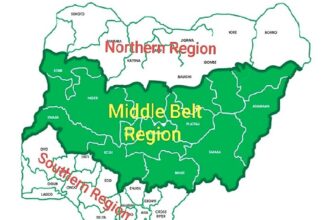The Director General, National Space Research And Development Agency, (NASRDA), Dr Halilu Ahmad Shaba has identified rural communities in Nigeria as a critical players in the global efforts to mitigate and adapt to climate change to ensure food security in the country.
Shaba who stated this in Akure, Ondo state capital, while delivering a lecture at the traditional Ulefunta festival organised by Deji of Akure kingdom, Oba Aladetoyinbo Aladelusi Ogunlade, stressed the need for communities to be empowered with knowledge and resources, that would sustain their agricultural practices and build resilience to climate-related challenges.
The NASRDA DG in the lecture titled ‘Climate Change And Food Security In Nigeria: The Role Of Rural Communities in Global Mitigation and Adaptation Measures’, noted that most rural dwellers’ survival depends mostly on natural resources which makes them prone to climate change and are significant in tackling such problems.
He revealed that agricultural activities contributed to climate change in spite of its contribution to the livelihood of the rural dwellers and citizens in general but identified synergy among governments, NGOs, international organizations, and local communities as one of the key factors in addressing the interconnected challenges effectively.
He said: “Agriculture is a major contributor to greenhouse gas emissions, primarily through activities such as deforestation, livestock production and the use of synthetic fertilizers.
“In Nigeria, rural communities often engage in traditional farming practices that may not be sustainable in the long run.”
While proferring solutions to the climate change menace, the NASRDA DG suggested that rural dwellers should be encouraged and supported to adopt what he described as climate-smart agricultural practices.
He emphasised that this measure could help mitigate emissions, adding that the techniques focused on land management and crop diversification.
Among other focuses of the practice are improved irrigation methods and the use of organic fertilizers.
He suggested that non-governmental organizations, government agencies and international organizations should assist in providing training resources and all necessary incentives to help the rural dwellers who are mainly farmers.
Another solution proffered by the NASRDA Director General is sequestering carbon dioxide from the atmosphere through afforestation and reaffirmation with rural dwellers playing strong roles.
Shaba posited that “Rural communities can be supported in adopting climate-resilient crop varieties that are better adapted to changing weather patterns. This can enhance food security by reducing cross losses due to droughts or floods.”
Giving more tips on how to get around climate change, the NASRDA boss pointed out that rural dwellers could engage in water resource management such as rainwater harvesting and efficient irrigation practices which will solve the problem of water scarcity caused by alteration in rainfall patterns caused by climate change.
According to him, educating farmers on climate change and government policies on mitigating and adaptation measures will also go a long long way to tackle food insecurity in the country.
In his opening remark, the Chairman of the occasion, Deputy Director, Institute Of Food Security, Environmental Resources and Agricultural Research, Federal University of Agriculture, Abeokuta, Dr John Oyedepo, charged the citizens, particularly farmers to be cautious of their activities in order not to aggravate the climate change.
The Chairman Ulefunta Festival 2023 Steering Committee, Mr. Olu Adekunle Ajanaku explained that the festival had contributed tremendously to the development of the capital city.
As part of activities to mark the traditional festival, Oba Aladetoyinbo, presented prizes to this year’s winners of the Ulefunta Essay Competition.
READ ALSO FROM NIGERIAN TRIBUNE








